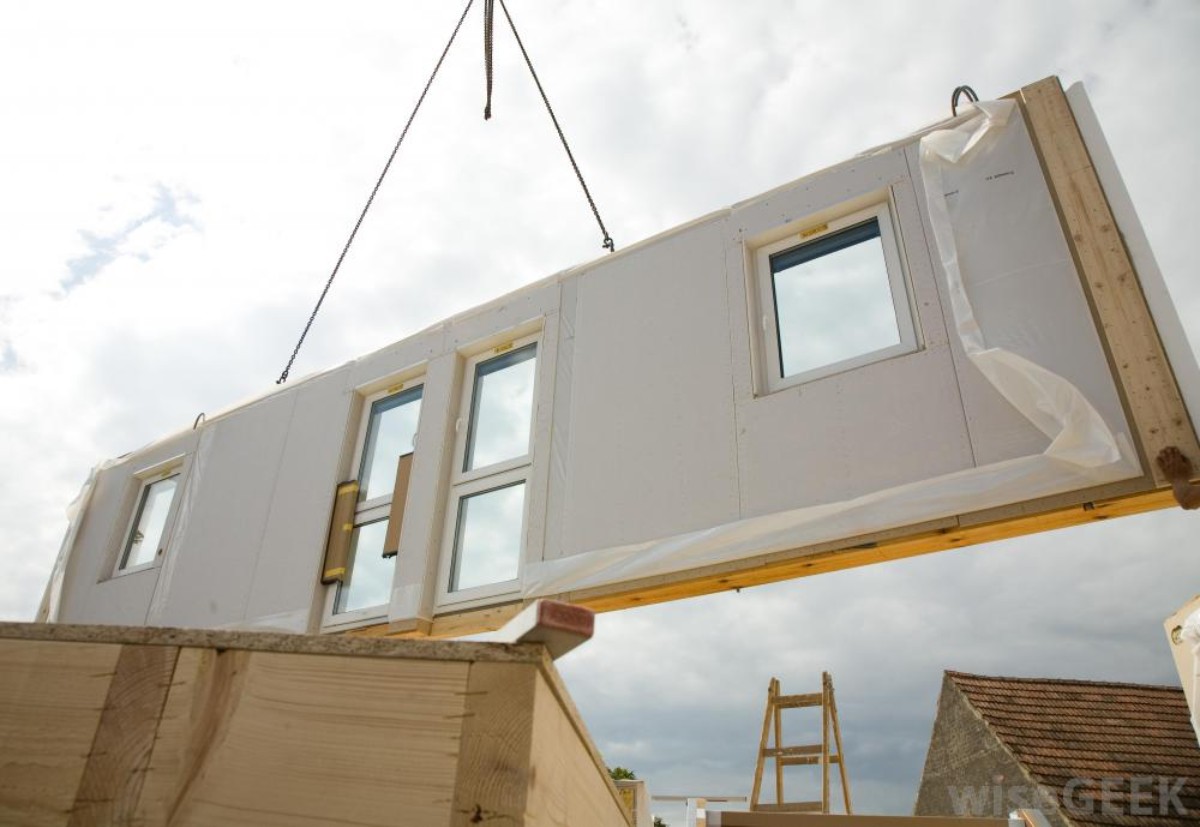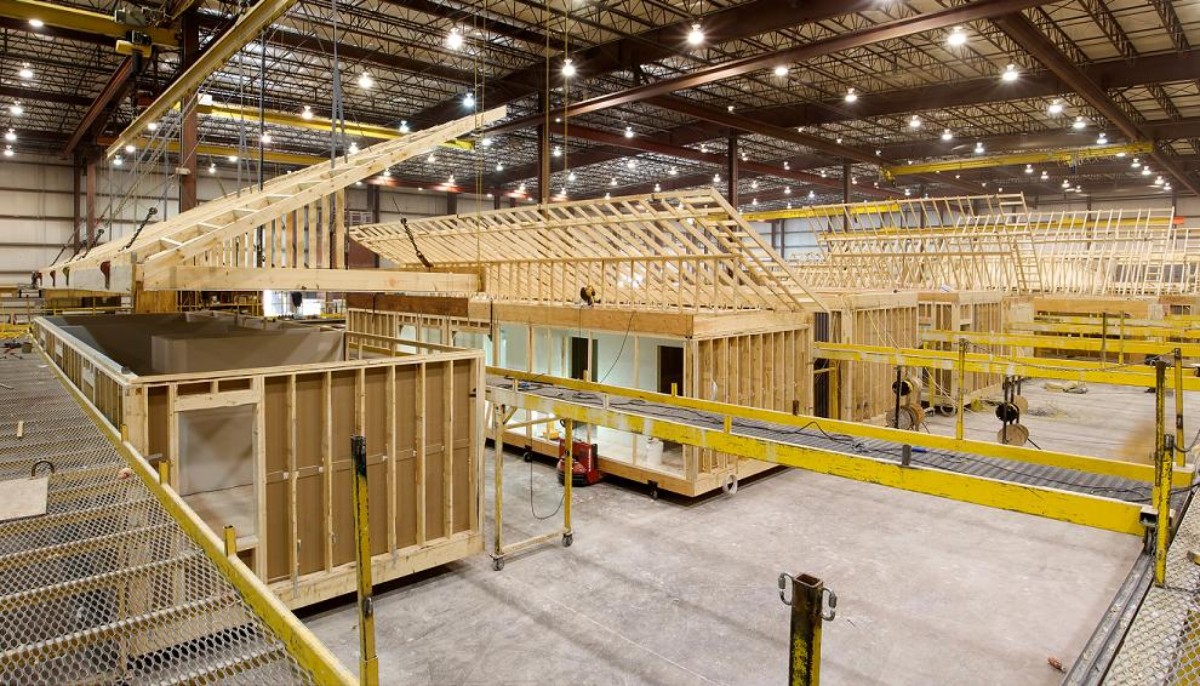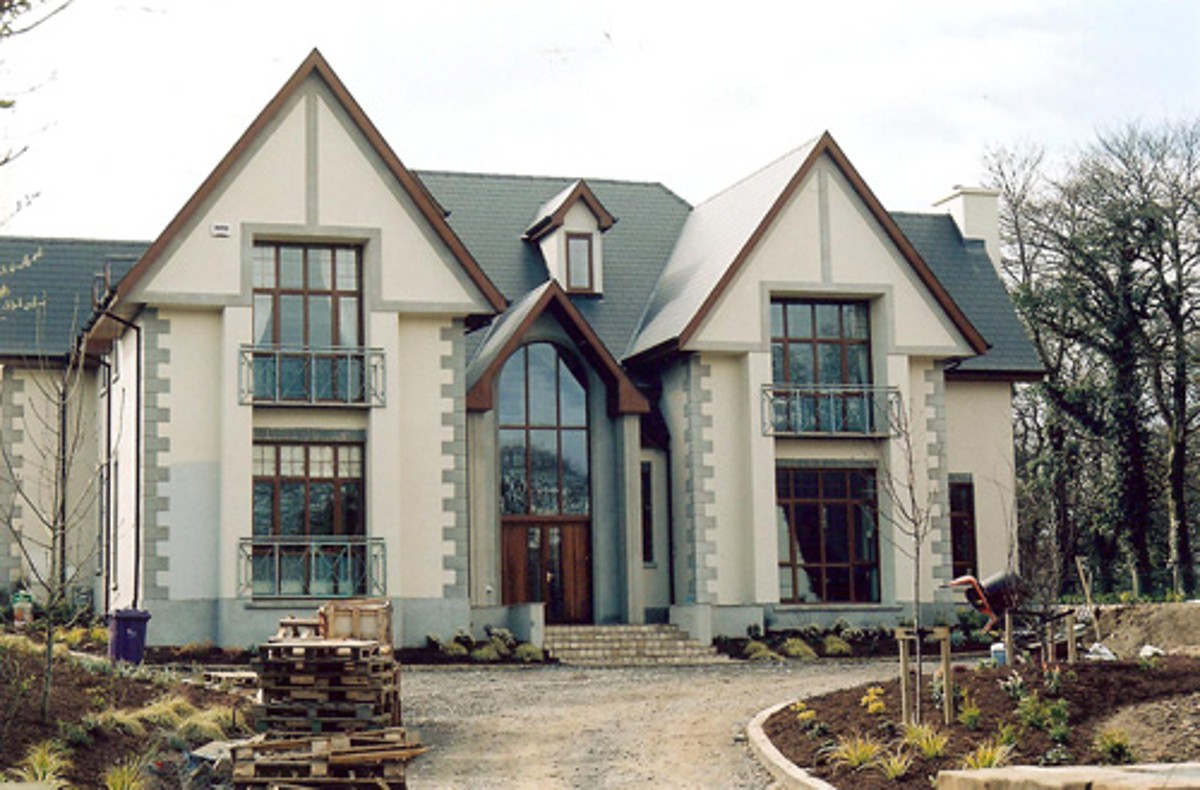Modular vs Traditional Housing
22/01/18
By Jon Harrison
We have heard a lot about modular house in recent months as a possible solution to our ongoing housing crisis in this country. But what exactly is a modular house and how does it differ from the traditional home?
Modular housing is becoming more popular due to its cost, efficiency and simple effectiveness. We take a closer look at what is a modular house and the differences between these and traditionally built homes.

What is a modular house?
There is one main difference between the on-site built home and the modular home. The modular home is pre-built off-site in a factory. Modular homes are built in sections almost like IKEA furniture that once complete is then transported to the building site for assembly.
Like a traditionally built house, a modular home can vary in design and size. They can also be mass produced to look a particular way, like what you would find in most housing estates throughout the country. These houses are normally built from the same materials as a more traditionally built home. However due to the nature of factory-based manufacturing, are considered more sustainable. As a result they are held up as examples of "green building".
It's becoming clear that there are good reasons to "build green", namely as a good long-term investment. "Certified" green buildings have a higher rental value in today's market, something which is evident in the European and increasingly the Irish rental sectors. They have also been proven to be cheaper for mass production.

Pros of the Modular House:
Traditionally built homes have their place within the construction industry set in stone. Whereas modular houses are a relatively new phenomenon. So what are the benefits of a modular home when compared to a traditionally built home? Well, there are four main benefits as follows:
1. Cost:
A modular home is more often than not cheaper to build. Not just for the buyer but the builders too. Think about this; the house has a shorter building time so the new owner will spend less renting another property while their new home is built. The savings are noticeable for the builders too, as travel or accommodation costs are dramatically reduced. As most of the work is completed off-site, builders will spend less time working on a project moving on to their next job.
2. Sustainability:
Over the last few years, environmental concerns have moved to the forefront of every industry. Construction is no different and this has seen a shift in the industry as a whole as the material selection is more important than ever before. This is especially evident with modular housing as creating sustainable housing is the main goal. By selecting materials that are better for the environment they are more cost-effective in the long run.
3. Quality Control:
Traditionally constructed homes and modular homes are both built according to regulatory codes. However, modular homes are normally fitted with steel chassis for extra durability during transport.
As the house arrives on site in sections, this chassis is very important during transport but also can withstand high winds in comparison to older buildings.
When it comes to quality control, an environment where construction managers can supervise work is rather important. A factory setting is considered a more controlled environment than a building site, which means it's easy for work to be supervised. Quality control is very important for modular homes as transport and assembly factors have to come into consideration.
4. Time:
Time is by far the most important point in the argument for modular housing. These type of houses are much faster to build in comparison to traditional homes. The build time on a modular house from design to finish is approximately 12- 16 weeks. Weather delays are not as much of an issue as the main construction is done off-site and as we know extreme Irish weather can cause significant delays to construction. As a result, on-site delays are greatly reduced and the disruption to nearby residents is also reduced. A quicker, cheaper build with fewer delays and happier neighbours the benefits are there to be seen.

Drawbacks of Modular housing vs traditional
It's fair to say that there are some good reasons to consider modular housing, but they aren't for everyone. Like everything, all is not perfect and the traditionally built home will always have a place in the construction industry. There are some occasions when modular housing is not suitable and here they are:
1. High-end/ Luxury buildings:
Luxury buildings will always be traditionally built. These types of building normally have customized features which modular housing simply can't support. This is due to either the design or material selection and in these cases building the home on-site is the better option. Builders have the ability and scope to create custom designs better than a modular system.
2. Land Restrictions:
There are some areas, normally in city centres, which have covenants on the land to specify that only brick-built homes can be built. This is normally seen in areas of historic reference where new building are required to fit with the "style" of the area. While modular homes can be retrofitted with brick facades, this normally drives the cost way up which nullifies the purpose of modular housing in the first place.
3. Access to built-up areas:
Tight rural roads or highly built-up areas can be very difficult to negotiate when transporting the sections for assembly. There are areas where access can be impossible due to tight roads and low power lines which means trying to build a modular house in this type of areas can be a big safety risk. Even in highly built-up areas, bringing pre-made housing sections through the tight living spaces of city centres can be very difficult which will then delay builds and increase costs. In these instances, it makes far more sense to use a more traditional building process.
Conclusion
Sub-urban and outskirt areas are prime real estate for modular homes. They have been mooted as one possible solution to the current housing shortage in the country. It can be argued, however that the biggest areas in need are the big cities which would need traditional builds.
Essentially, this decision will come down to buyers, governments and construction companies. What is clear though is it's becoming more important for construction companies to support modular housing. The future of the industry is changing and we are here to help. Whether its power tools, nuts and bolts or simple cleaning products, we are ready to support you no matter the project.
